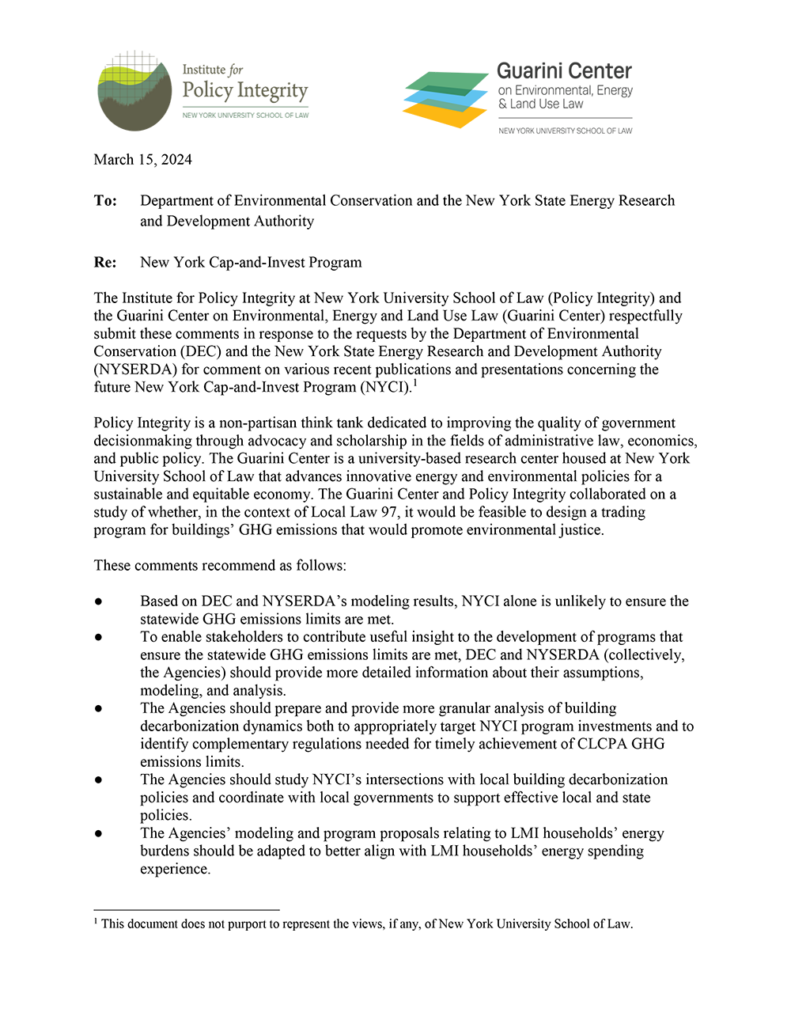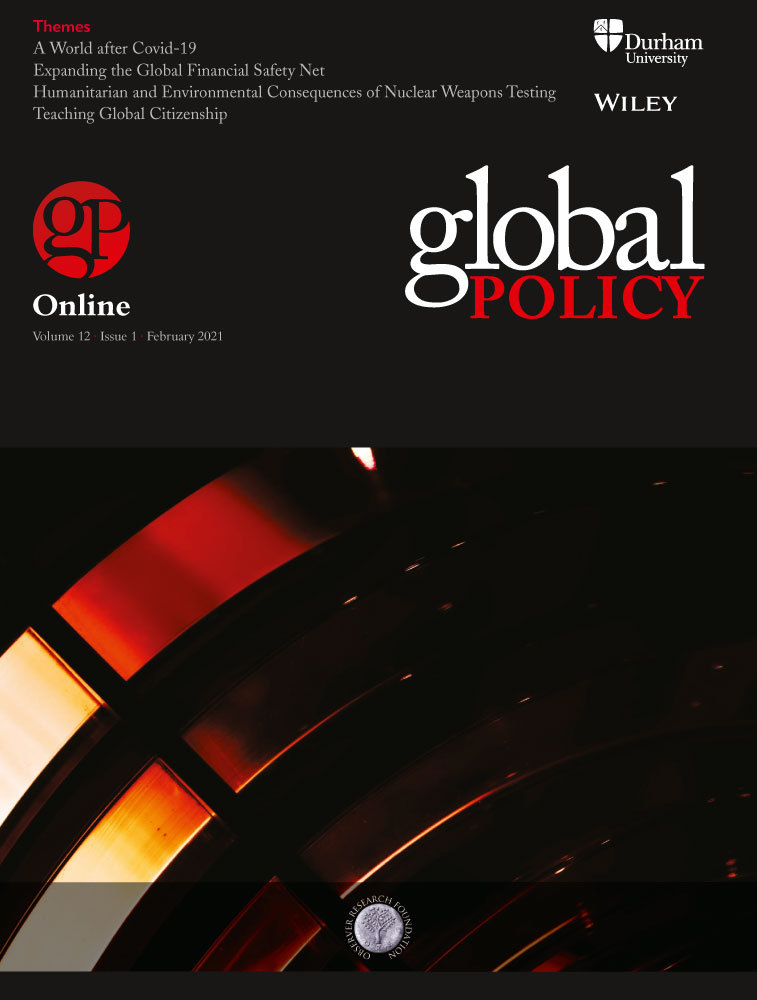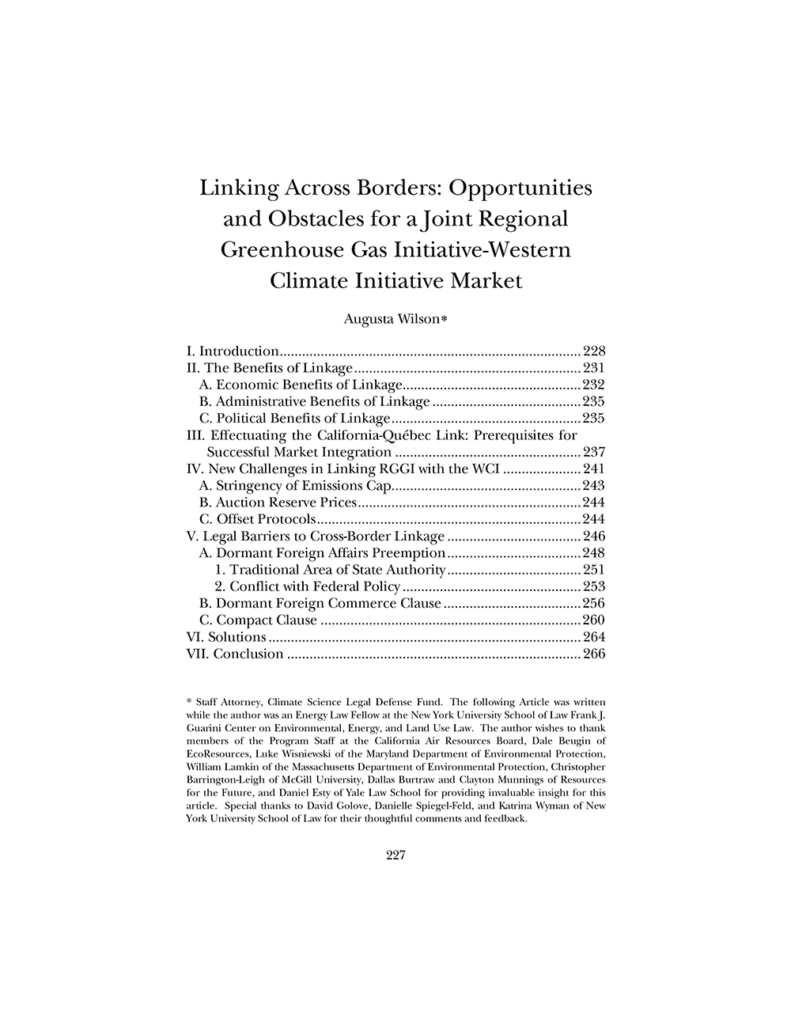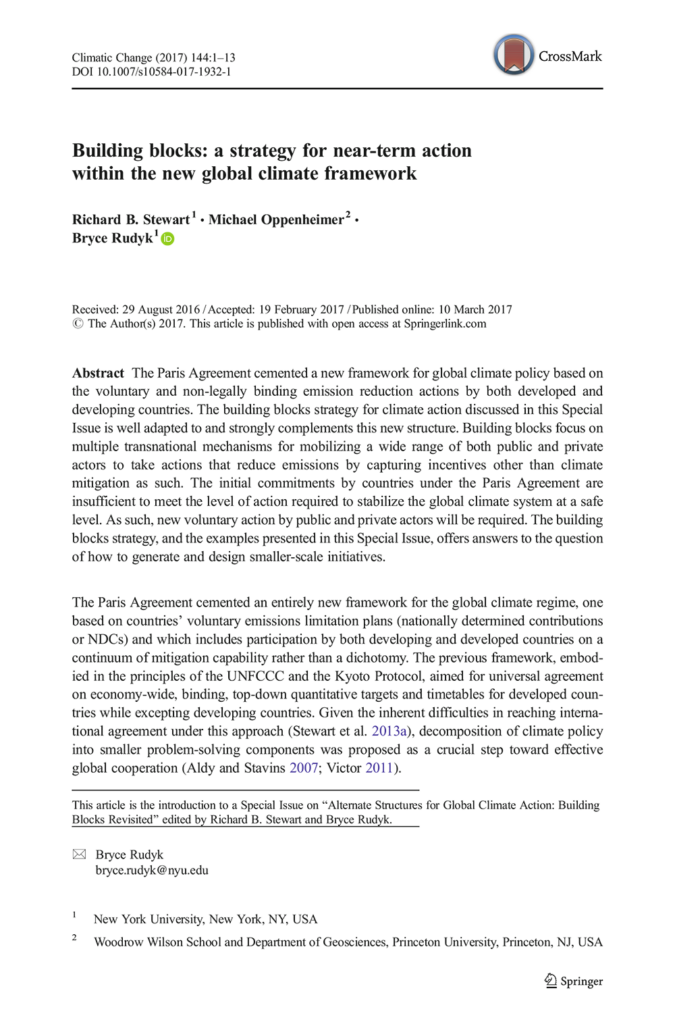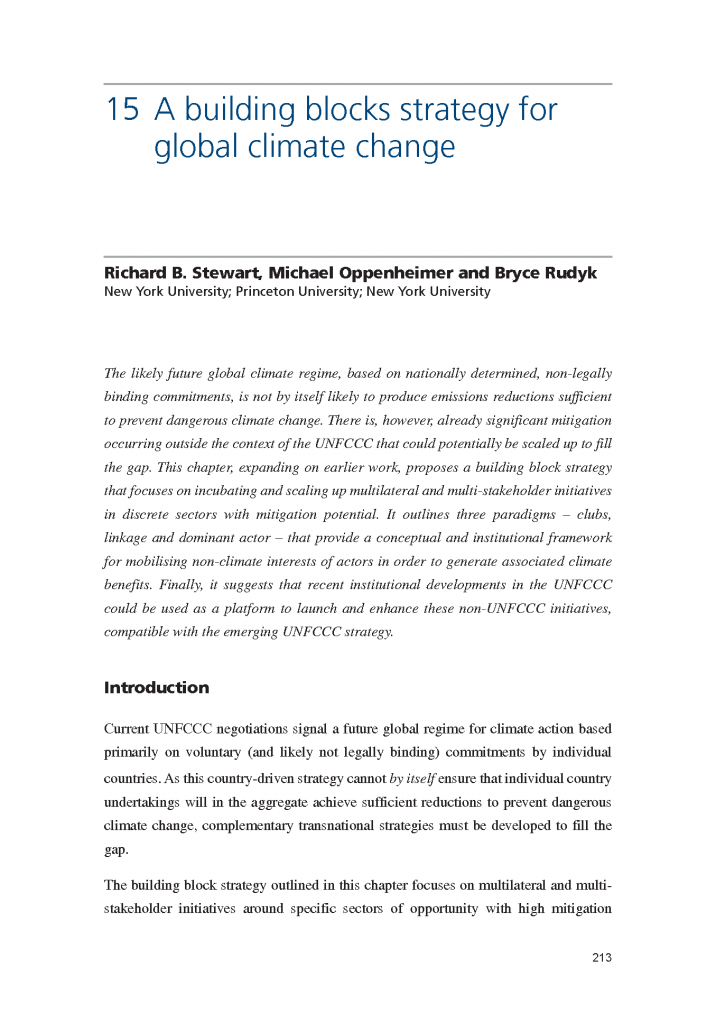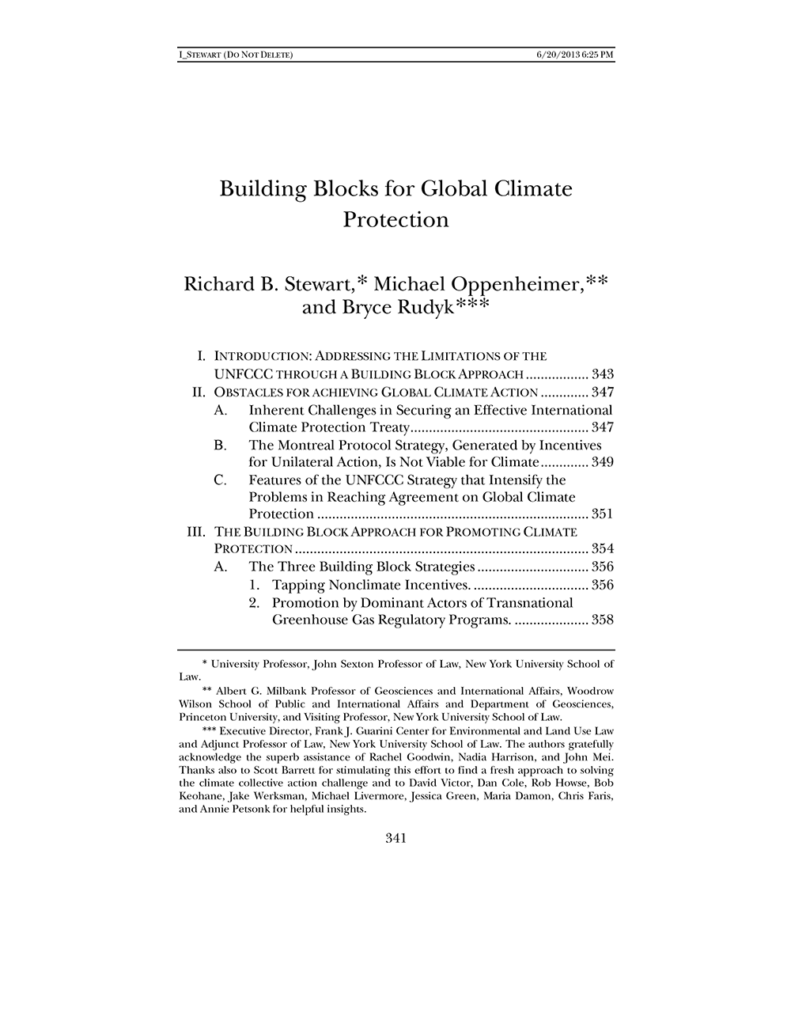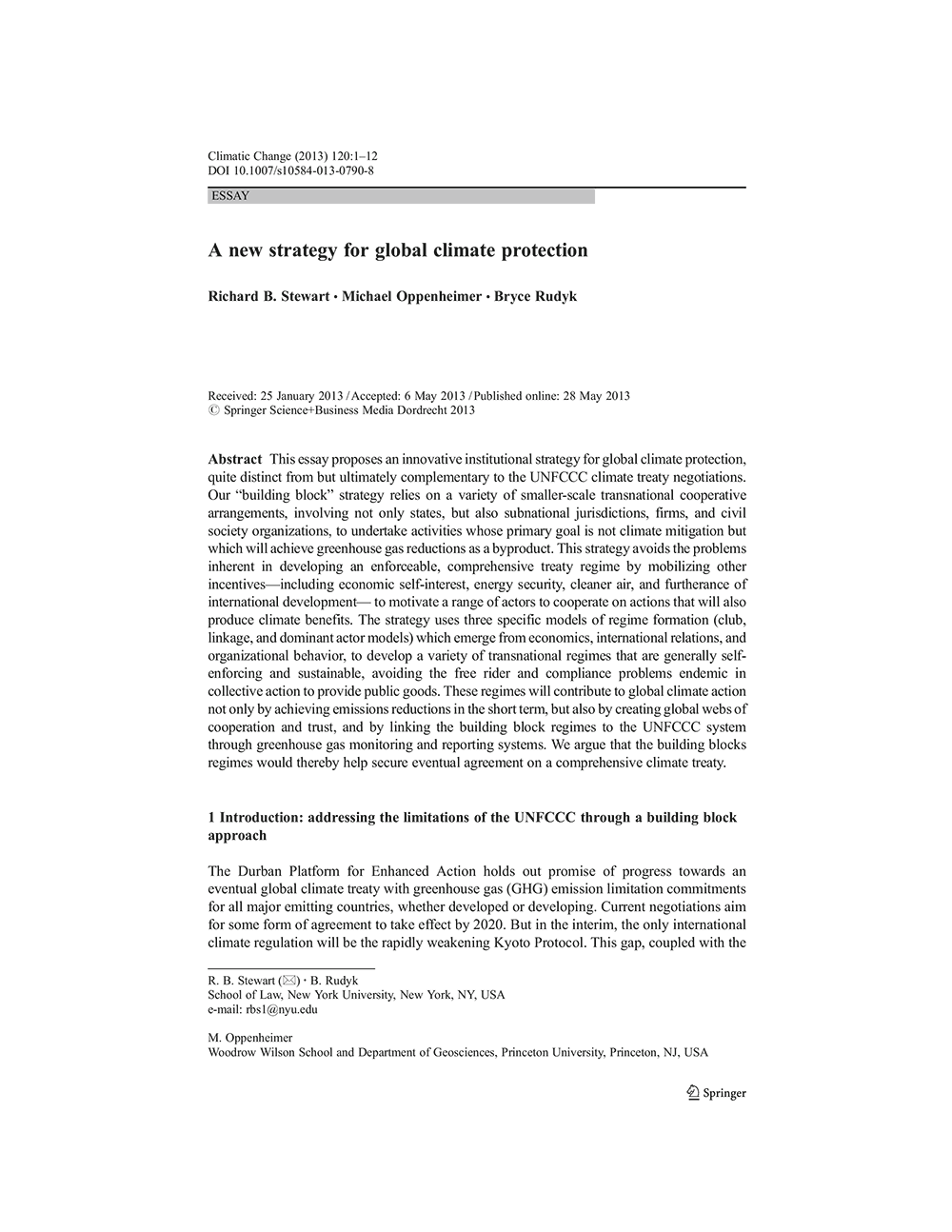Joint Comments to New York State DEC and NYSERDA on New York Cap-and-Invest Program
The Guarini Center, together with the Institute for Policy Integrity (Policy Integrity), submitted comments to the New York State Department of Environmental Conservation (DEC) and New York State Energy Research and Development Authority (NYSERDA) in response to a request for comment on various recent publications and presentations concerning the future New York Cap-and-Invest Program (NYCI), […]
Joint Comments to New York State DEC and NYSERDA on New York Cap-and-Invest Program Read More »

